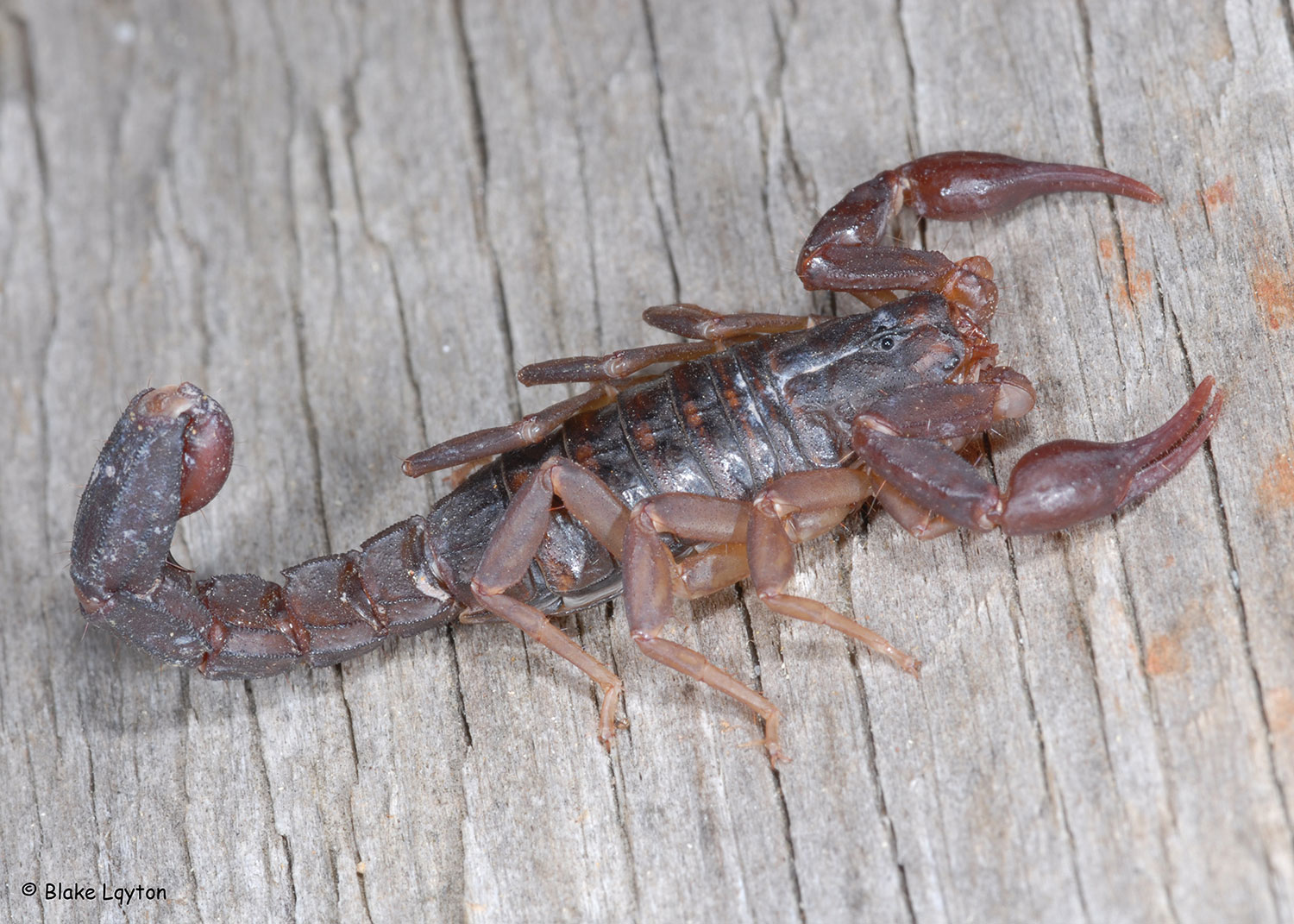Southern Devil Scorpion, Vol. 4, No. 30

Vaejovis carolinianus
Order: Scorpiones
Family: Vaejovidae
Scorpions in Mississippi? They are not that common, but they are here. Actually, there are two species, southern devil scorpions and striped bark scorpions. Although they occur in other areas of the state, southern devil scorpions, also known as southern unstriped scorpions, are most often found in the Northeast corner of the state, roughly from Columbus to Corinth, and a row or two of counties to the west. These scorpions are even more common in Alabama and Tennessee and occur through much of the Southeast.
Mature adults are only about 1.5 inches long. Scorpions are nocturnal and hide under debris or in cracks or crevices during the day. They are predators of spiders and large bodied insects and use their sting to kill their prey, as well as for defense. Females give birth to live young, which ride about on the female’s back for the first few weeks of their life before striking out on their own. Unlike western species, the southern devil scorpion favors moist, humid environments.
Can they sting? Yes, and it hurts but is usually not medically serious. People who have been stung by southern devil scorpions describe the pain as being similar to that of a wasp sting, with no serious or long-lasting medical problems. As with bee or wasp stings, there may be individuals who are hypersensitive to the venom.
Control: Preventive exclusion—making buildings bug-proof—is the first step in dealing with a scorpion problem. This includes installing door sweeps and weather stripping, caulking cracks, sealing around plumbing and electrical entries, and repairing torn or missing screens. The next step is to clean up outdoor debris and, to the extent possible, eliminate places scorpions may use for shelter. This includes things like: piles of rock, stacks of lumber, stacked firewood, and dead logs and limbs, as well as trash or other debris. It is a good idea to do these two steps in this order, bug-proofing first and then debris cleanup, otherwise you could have a bunch of displaced scorpions looking for a home before you get all the potential entry points sealed. Scorpions are difficult to control with insecticides, but outdoor perimeter sprays with pyrethroid insecticides (bifenthrin, cyfluthrin, permethrin, deltamethrin) can be helpful, especially if care is taken to properly treat cracks, crevices, and other places where scorpions may hide. Enlisting the services of a professional pest control company may be the best choice when dealing with heavy infestations.
Blake Layton, Extension Entomology Specialist, Mississippi State University Extension Service.
The information given here is for educational purposes only. Always read and follow current label directions. Specific commercial products are mentioned as examples only and reference to specific products or trade names is made with the understanding that no discrimination is intended to other products that may also be suitable and appropriately labeled.


